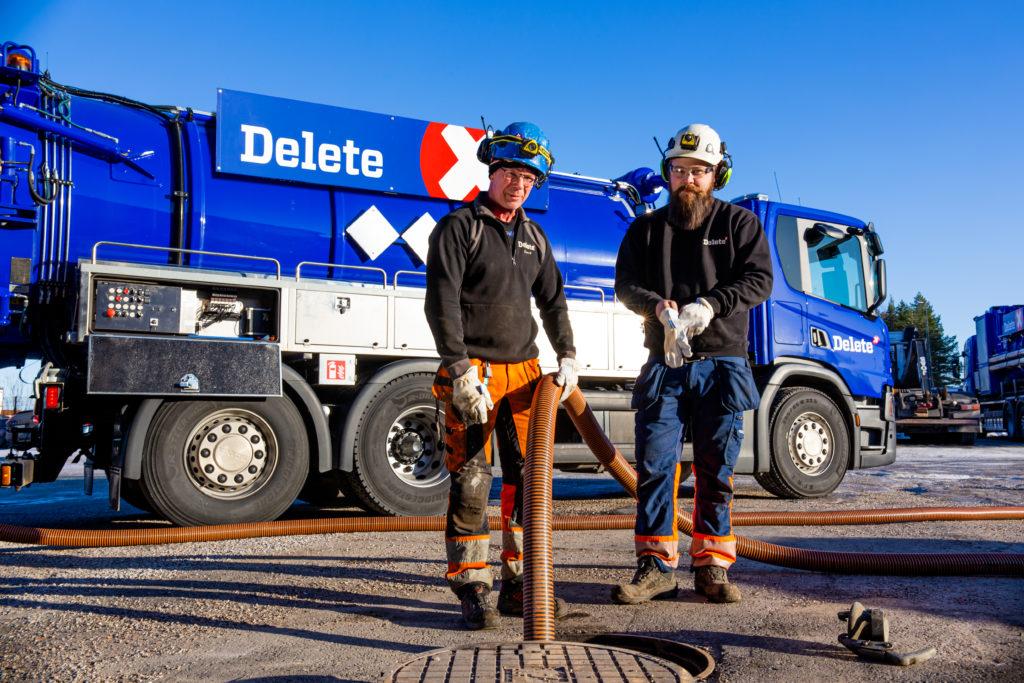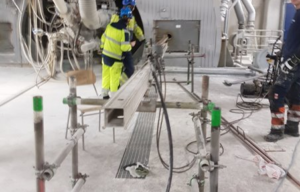Delete signed a five-year agreement with Miva (Miljö och Vatten i Örnsköldsvik AB) concerning the emptying of sludge tanks and grey water tanks in the Örnsköldsvik area. Miva is a municipal corporation that produces, distributes and sells domestic water and treats and purifies wastewater in the Örnsköldsvik area. Miva’s subsidiary Domsjö Vatten AB produces process water for industry in the Domsjö industrial area.
The Örnsköldsvik area covered by the agreement is large, totalling 21.6 square kilometers, with a population of approximately 60,000. Delete serves the local residents by emptying the grey water tanks and sludge tanks of about 30,000 households. Each year, Delete will empty the sewage systems of approximately 6,000–9,000 residential properties.
The Örnsköldsvik urban area is located only a few kilometres from the Domsjö industrial zone, where Delete operates at several large industrial facilities using high-power vacuuming equipment that can also be used in the delivery of the services covered by the agreement with Miva. The agreement helps balance out the seasonal variation of Delete’s industrial cleaning operations and enables the efficient provision of services at the sites covered by the Miva agreement because the equipment is in the area throughout the year.
The Domsjö industrial zone and the equipment needed there means that the emptying of household sludge and wastewater systems can be carried out efficiently in terms of logistics and environmental impacts. The volumes of the emptying operations are known to a high degree of precision, which means that efficient route planning enables the optimisation of logistics and the minimisation of the related emissions.
Delete has made a commitment to carry out the emptying operations under the agreement using equipment that is at least 75 percent powered by biodiesel produced from renewable sources. The target for biodiesel use is 100 percent. The availability of biodiesel is currently the biggest obstacle to achieving a utilisation of 100 percent.
Special attention has been placed on occupational safety because the operations covered by the agreement take place in residential areas. The identified risks include the need to move in populated areas and work at sites where space is limited. Occupational and environmental safety are ensured and improved by using vehicles equipped with 360-degree cameras. The vehicles also feature a warning sound that is automatically activated when the vehicle moves slowly.









